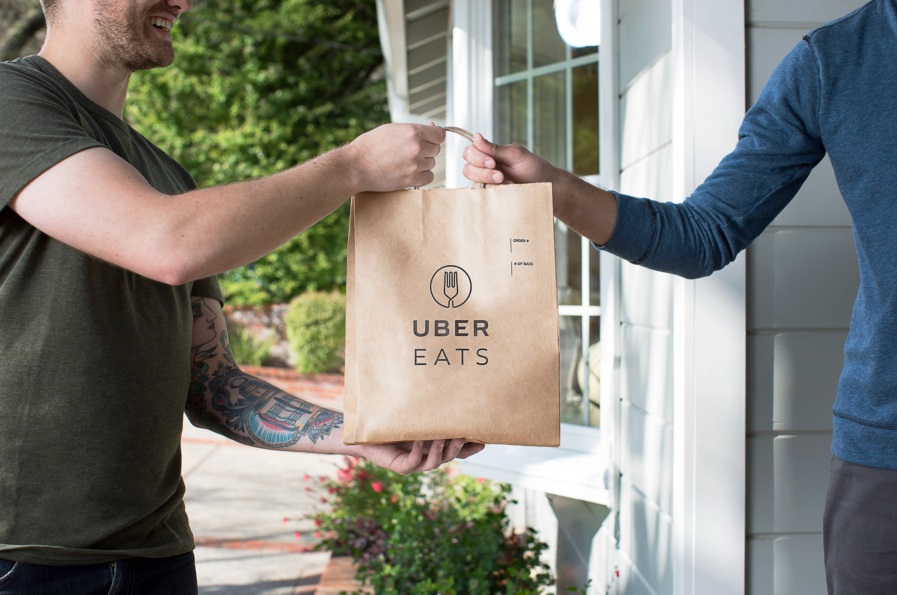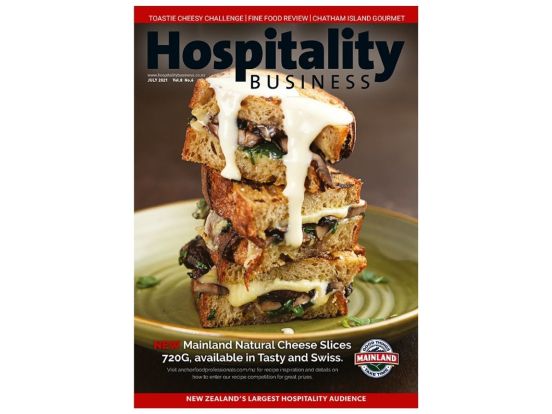Food delivery apps are killing small businesses, an Australian industry body has warned, urging patrons to support their local eateries directly.
- Restaurants and Catering Australia (RCA) found that the majority of business owners felt it was impossible to make any money with them, given the high fees they pay.
- It leaves businesses with just two choices: raise prices or close for good. RCA CEO Wes Lambert, however, noted that the economy is growing quickly enough for customers to swallow any prices hikes.
- And in New Zealand similar high fees are impacting the industry says RANZ CEO Marisa Bidois.
For those of you who’d prefer to never leave the house, there’s bad news for you: your food delivery habit is hurting the nation’s food scene.
In Australia, given the proclivity of city-dwellers for services like Uber Eats, DoorDash, Deliveroo and Menulog, industry association Restaurants and Catering Australia (RCA) has actually resorted to pleading with customers to let them go.
“We encourage people to actually go to their favourite restaurants to either pick up their food or dine in rather than use a delivery platform,” RCA CEO Wes Lambert said in a release issued to Business Insider Australia. “Convenience is obviously a strong driver for patrons, but it is important diners understand that restaurants will close if something doesn’t change soon.”
Commenting on the Australian predicament, Marisa Bidois CEO of the Restaurant Association of New Zealand agreed that the commission rates charged by Uber Eats are also unsustainable for the NZ hospitality industry:
“ A number of our members have now opted out of Uber Eats for this reason.
“We have been working with Uber Eats for more than a year now to try and lower commission rates and improve the working relationship with the industry, but have come to a stalemate around commission rates – so this has not progressed.
“The feeling amongst our members is that high commission rates, slow payments, price surges and driver errors are making it increasingly difficult for them.
“Most of our members are not seeing any profits from their Uber business but feel that there is currently no viable alternative with as much exposure to the dining public. The demand for home delivery is increasing and many members feel that if they are not able to offer this service to customers, they will lose business.
“An interesting point is that we are seeing other delivery services enter the market here which is what we have also seen overseas – Lazy as, Menulog and Deliver-easy with commission rates as low as 15%.” We are encouraging our members to explore other options for delivery at this stage and have also been exploring other on behalf of our members.”
Australia’s radical call to ditch the delivery companies comes straight off the back of a recent survey of some 15,000 local businesses. While acknowledging the services helped drum up more business, the majority claimed it was impossible to actually make a profit from them due to their high fees. The news is troubling, especially considering DoorDash is signing up restaurants without their knowledge.
Unless Australians heed the call, their favourite diners and eateries will have but two choices, Lambert warned — hike prices or shutter doors.
“Our call to the Australian dining public is to be prepared for their local restaurant, cafe or caterer raising the prices of their meals to ensure they survive. These businesses cannot continue to pay the high commission forced on them by delivery platforms on top of rising costs across the board,” he said. “Something has to give or businesses will be forced to close.”
In fact, the latter seems to be the more likely option, with 55% saying their inability to raise prices and maintain business was their biggest challenge. In fact, it again comes back to the same economic factors weighing on most Australians.
“When millions of households are seeing bills rise while wages stay relativity flat, restaurants, cafes and caterers do not feel customers will accept any increase in their prices, even as key costs across the business continue to rise year after year,” Lambert notes in the report.
It’s gotten so bad, three in four owners admitted they’ve forgone paying themselves at award rates, with more than half doing so just to keep their heads above water.
“This year, we are seeing more restaurants struggle than ever before. There are a number of rising and additional costs that consumers don’t consider which are putting extreme financial pressure on restaurant owners,” Lambert said.
“Food prices have soared as farmers combat the drought and costs such as rents, wages and utility prices continue to rise. Finally, restaurant, cafe and catering businesses are left to contend with the hefty chunk delivery platforms take out of the profit. It’s a battle that business owners are slowly losing.”
It comes at the same time that an Australian court is hearing Uber Eats drivers are only able to negotiate a pay cut, rather than a pay rise.
Given both restaurants and drivers have beef with some of these services, customers appear to be the only ones still enthralled with them.








